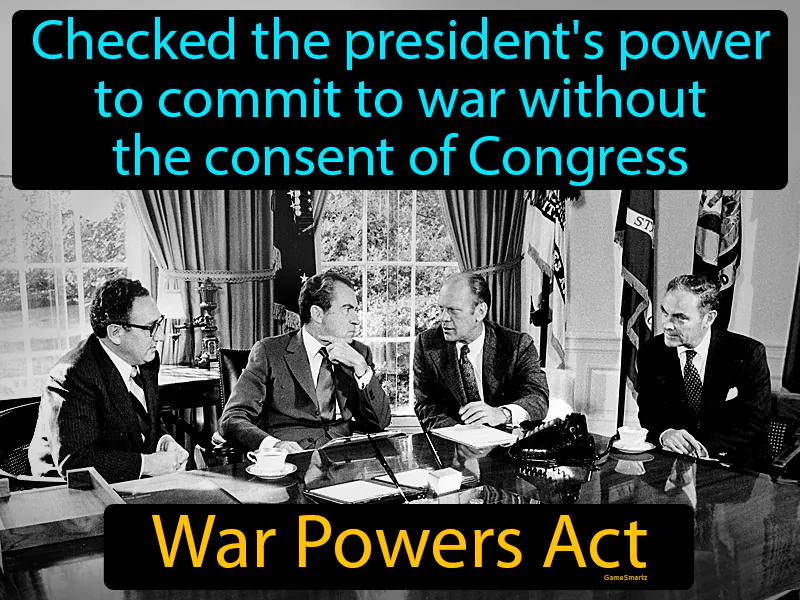War Powers Act

The War Powers Act, passed in 1973, was a response to concerns about the president's ability to engage the U.S. in conflicts without congressional approval, highlighted by the Vietnam War. During the Vietnam War, presidents had committed troops without a formal declaration of war, leading to prolonged involvement. The Act aimed to ensure that both Congress and the president shared decisions about going to war, reflecting the need for checks and balances. Today, it remains relevant as it ensures that military actions abroad receive proper oversight, preventing unilateral decisions that could lead to extended conflicts. For example, if a president wanted to send troops overseas for a potential conflict, the War Powers Act requires them to notify Congress, which can affect how quickly and why the country might engage in military actions, impacting everyone's lives by influencing national security and resources.
Practice Version

War Powers Act: Checked the president's power to commit to war without the consent of Congress. War Powers Act. The War Powers Act is a U.S. law that limits the president's ability to deploy military forces without Congressional approval.